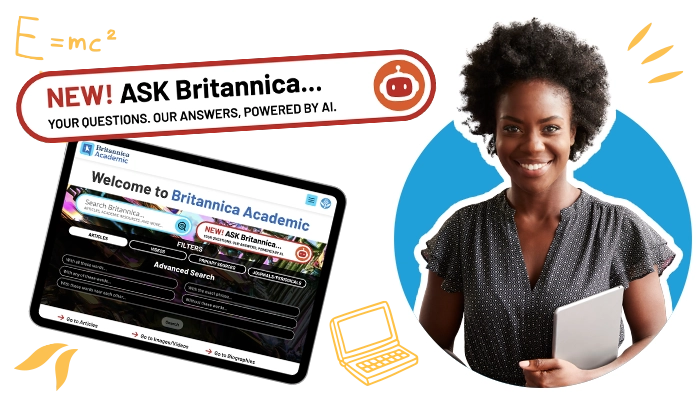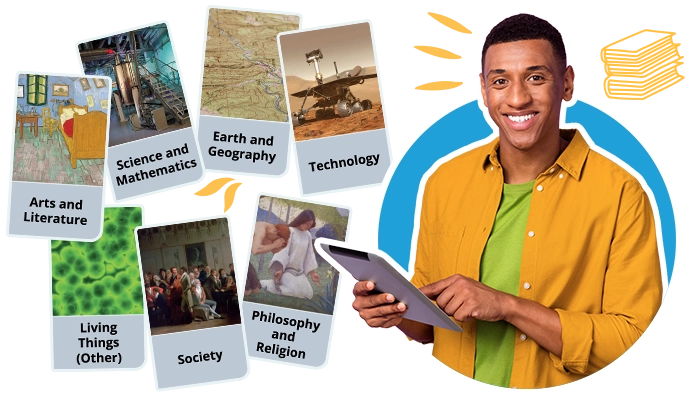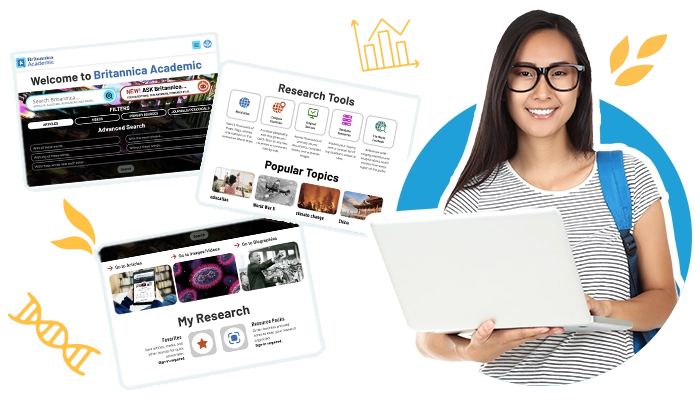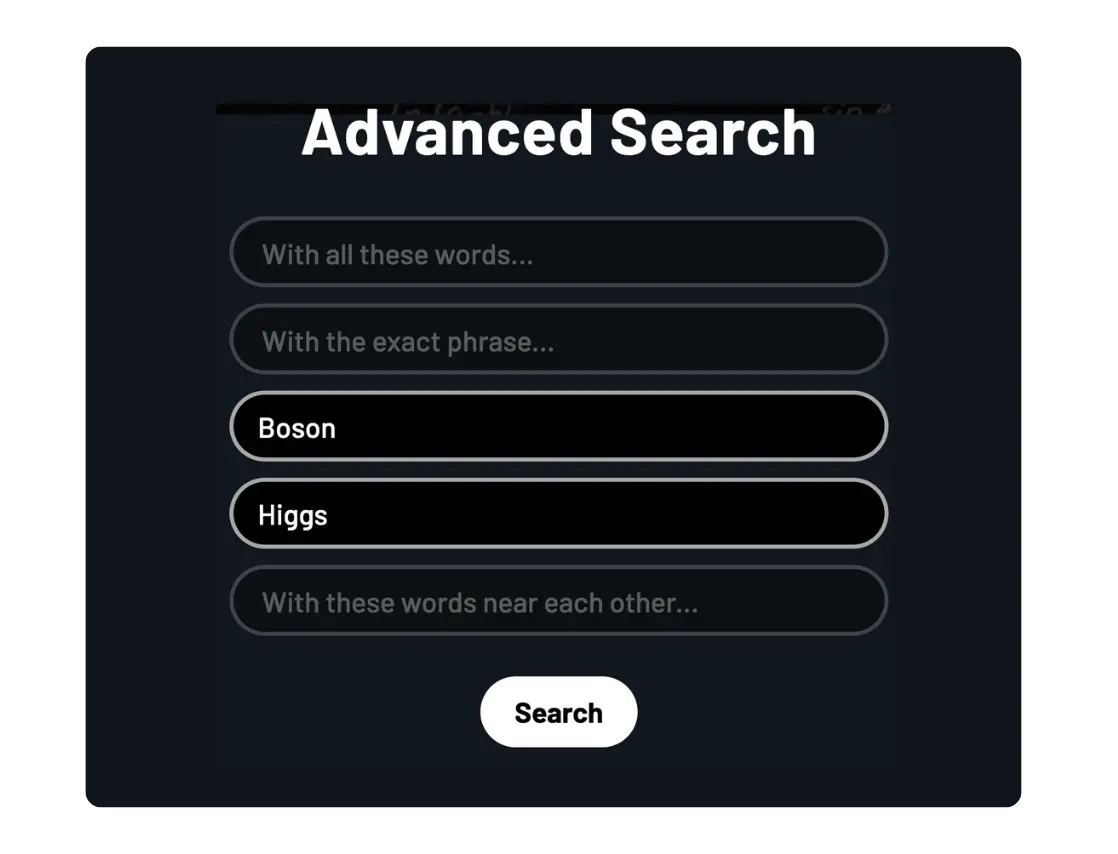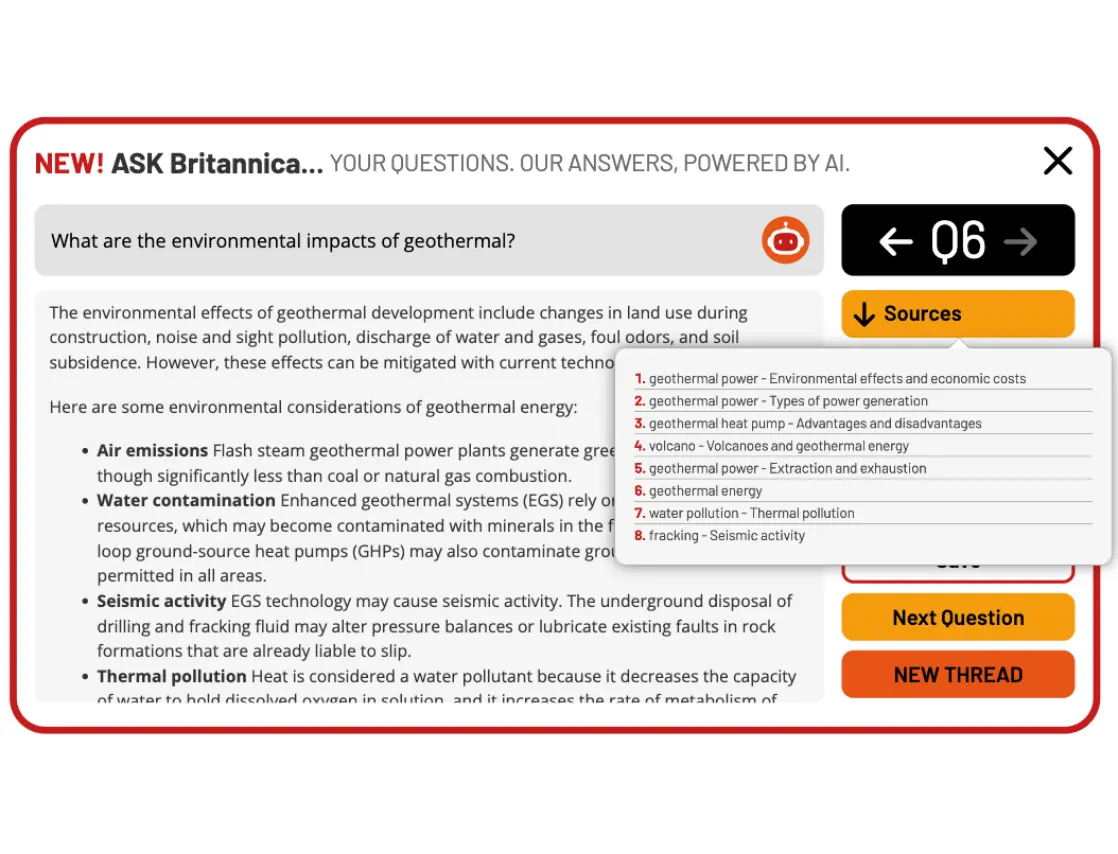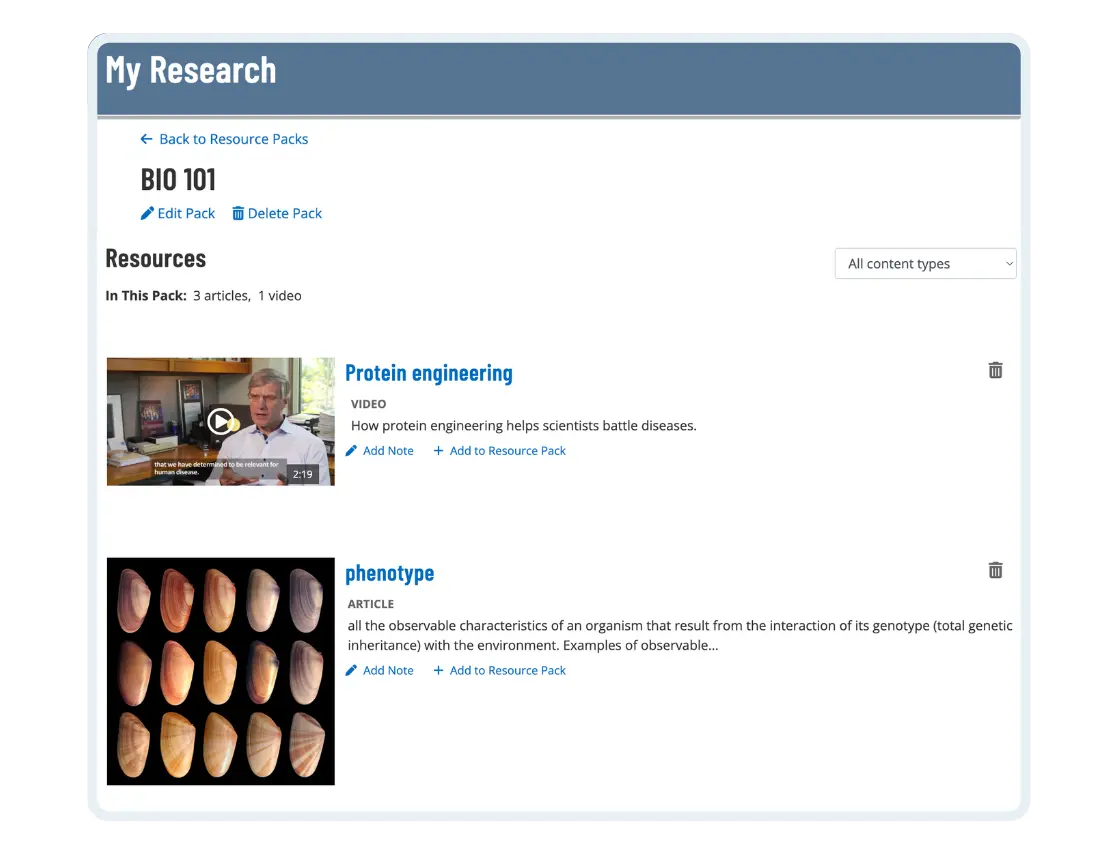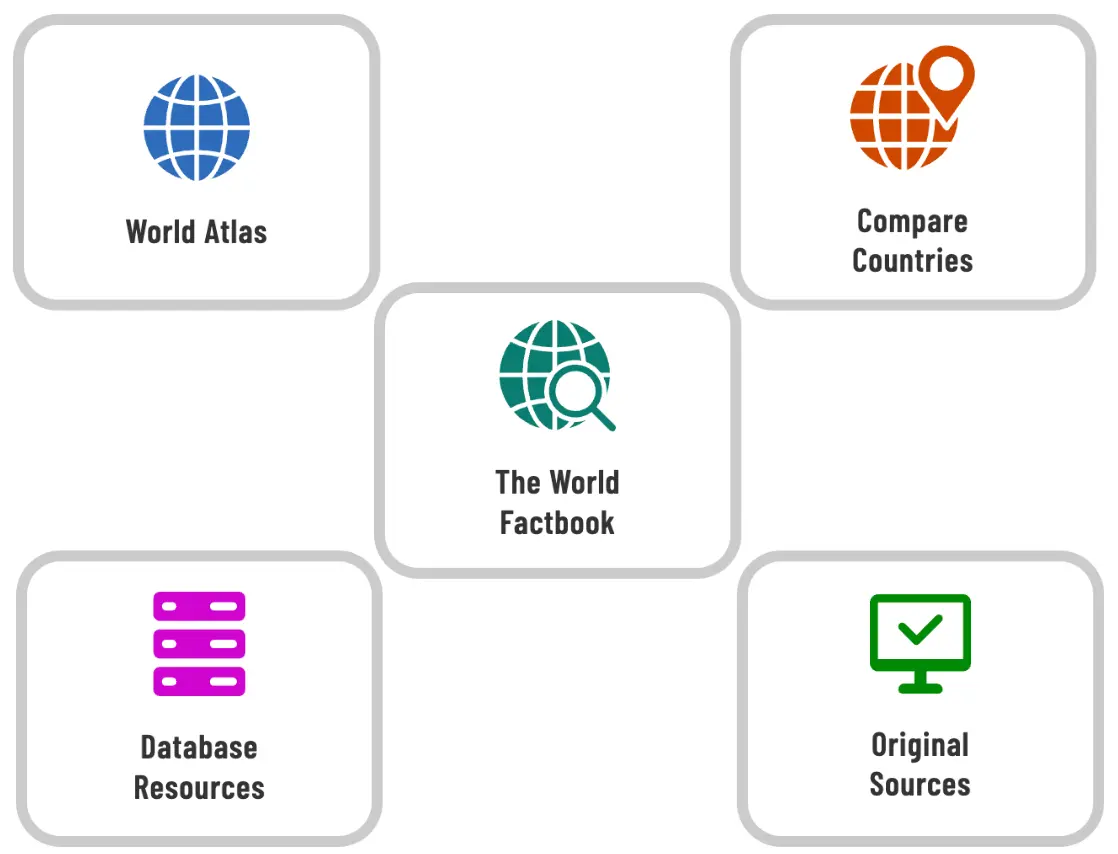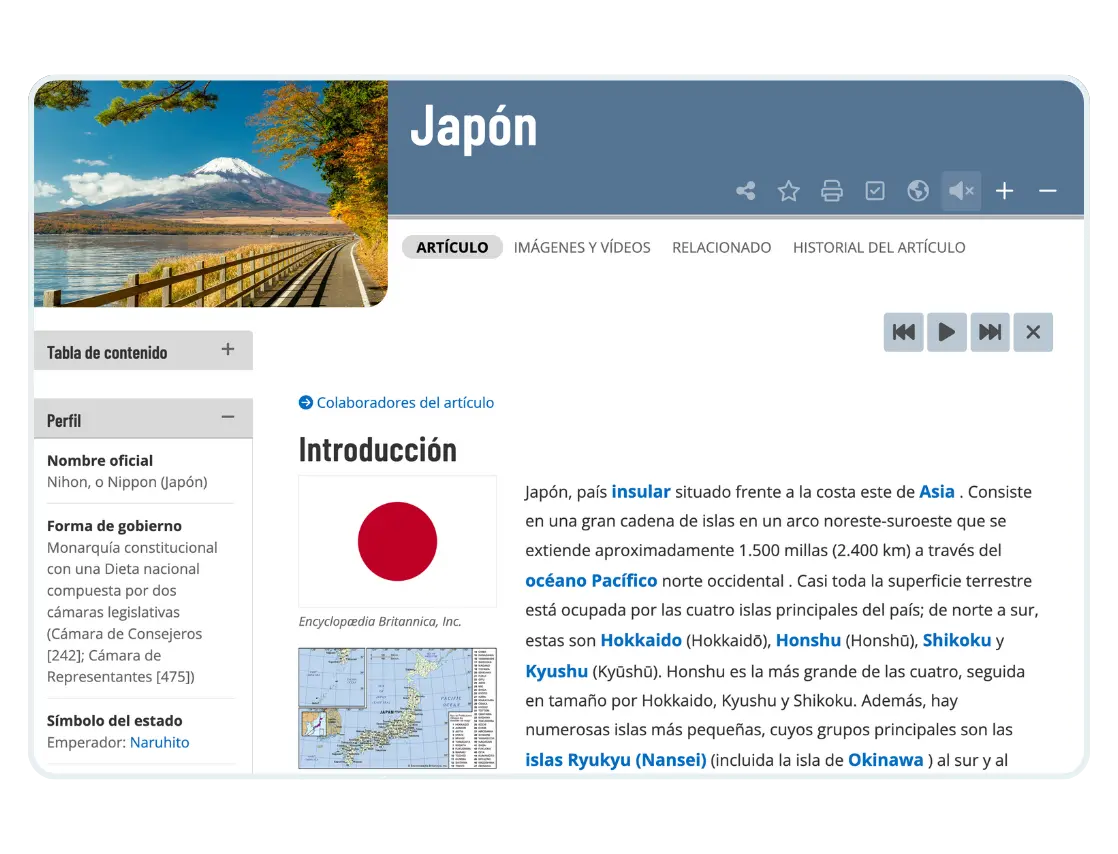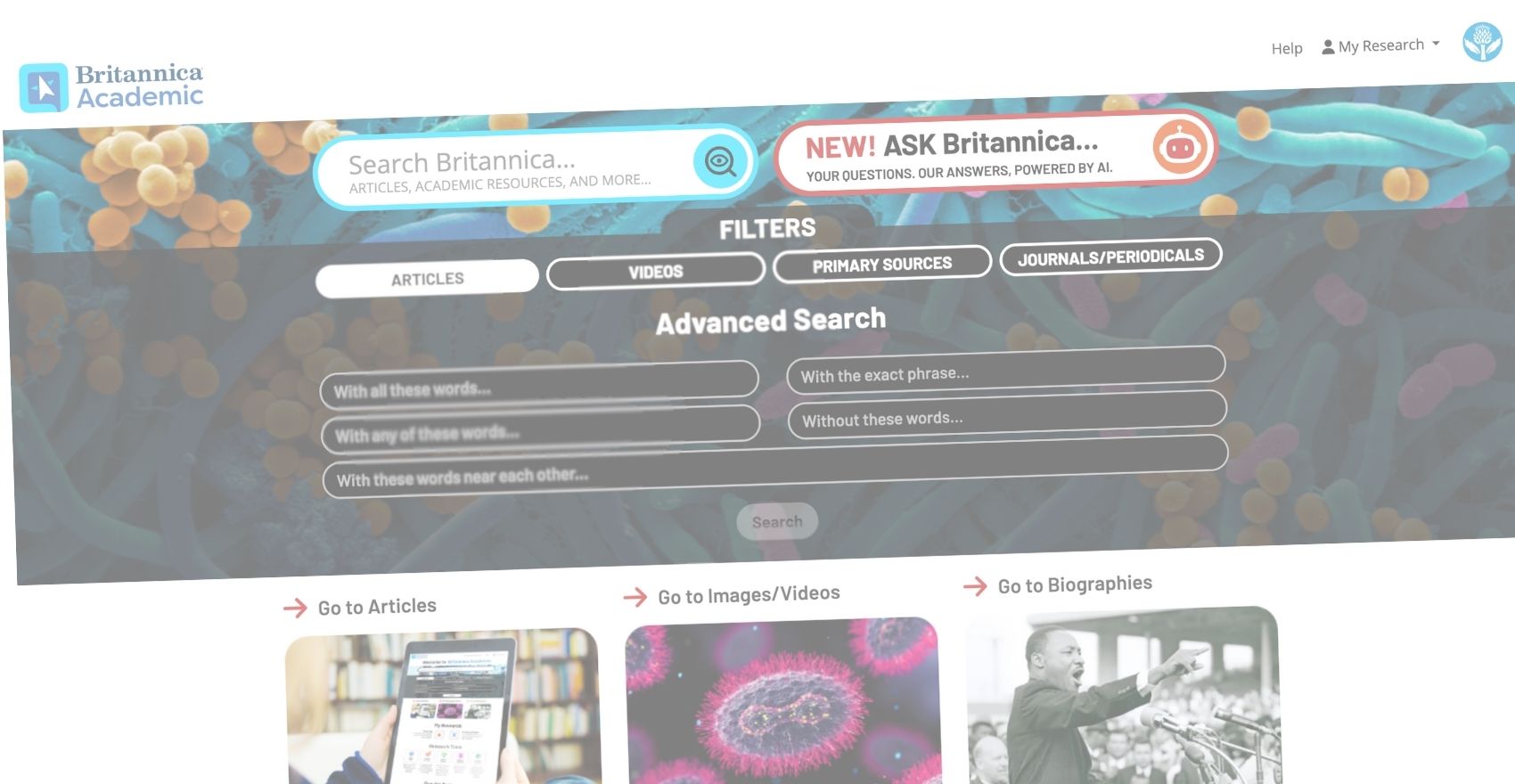

Britannica Academic
Fast & Easy Access to Trusted Information
Enrich your digital collection with a vast database of accurate, expert-reviewed information with balanced global insights at your fingertips.


Authoritative Information. Smarter Research. Responsible AI.
Britannica Academic brings together rigor, reliability, and innovation. With verified content, global perspectives, and research tools powered by responsible AI, it’s the trusted foundation for critical thinking and scholarly discovery.

Content You Can Trust
Access meticulously fact-checked, fully cited, and continuously updated resources across every discipline, authored by experts and global thought leaders.

A Complete Research Toolkit
Explore advanced tools for efficient inquiry, including Merriam-Webster’s Collegiate Thesaurus, world data references, primary sources, and cross-database integration.

Responsible AI, Built for Education
ASK Britannica delivers quick, accurate, and transparent answers from Britannica’s vetted content, offering a safe, academic alternative to open web AI tools.

Global Insight and Perspective
Gain access to content representing diverse voices, global viewpoints, and interdisciplinary connections, helping researchers approach every topic with balance and depth.
A Look Inside Britannica Academic
Britannica Academic combines authoritative scholarship with modern functionality. From advanced search tools to AI-assisted inquiry and seamless institutional integrations, every feature helps students and faculty research smarter and with total confidence.
The Most Trusted Research Resource for Colleges and Universities
From responsible AI to expert-reviewed content, Britannica Academic gives users the tools and confidence to research, analyze, and learn deeply. Every click leads to credible insights and every feature supports modern, informed scholarship.
Comprehensive & Authoritative Research Tool
Access hundreds of thousands of meticulously fact-checked articles, primary sources, e-books, and multimedia across all major disciplines, from history and literature to science, sociology, and beyond. Contributions from Nobel laureates, historians, and subject-matter experts ensure every search starts from credibility.
Seamless Accessibility & Integration
Accessible anytime, anywhere, and on any device. Britannica Academic integrates effortlessly with library discovery tools, LMS platforms, and institutional portals while supporting multilingual learners through built-in translation and text-to-speech features.
ASK Britannica: Research Made Simple
The new AI-powered secondary search delivers concise, contextualized answers drawn exclusively from Britannica’s verified database. Each result includes linked articles and citations for transparency and deeper exploration—no distractions, just trusted facts.
World-Class Reference Toolkit
Move beyond basic search with built-in access to The World Factbook, Merriam-Webster’s Collegiate Thesaurus, primary sources, country comparisons, timelines, and world atlases, all designed to broaden understanding and connect ideas.
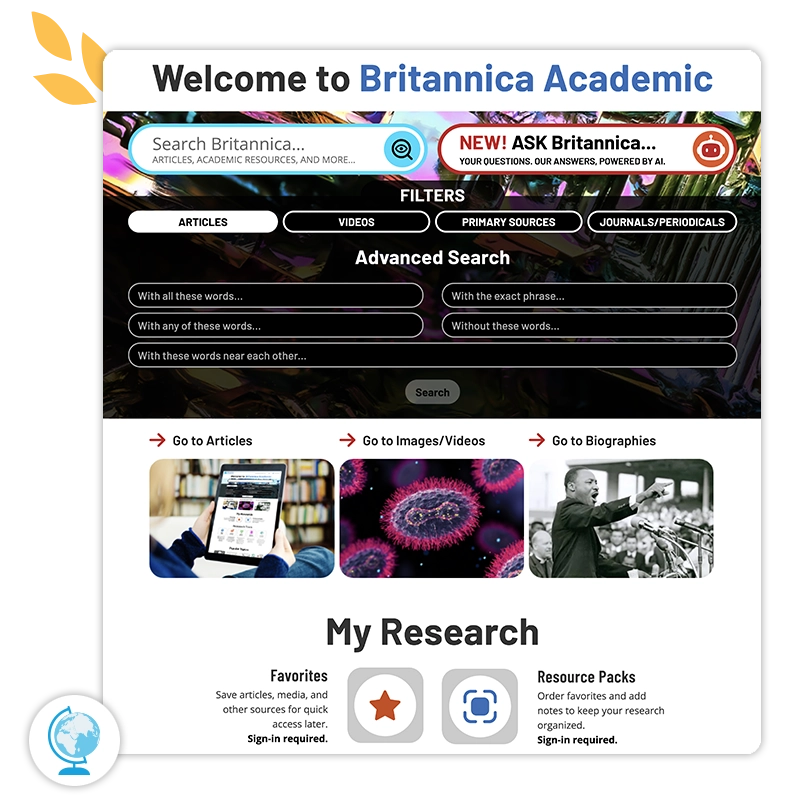
Flexible Access & Integration

Access and Integration
From the classroom to remote learning and beyond, Britannica Education provides a reliable solution for uninterrupted teaching and learning.

Statewide Access
Britannica Education partners with organizations across the nation to provide statewide resource access to students, educators, libraries, and more!
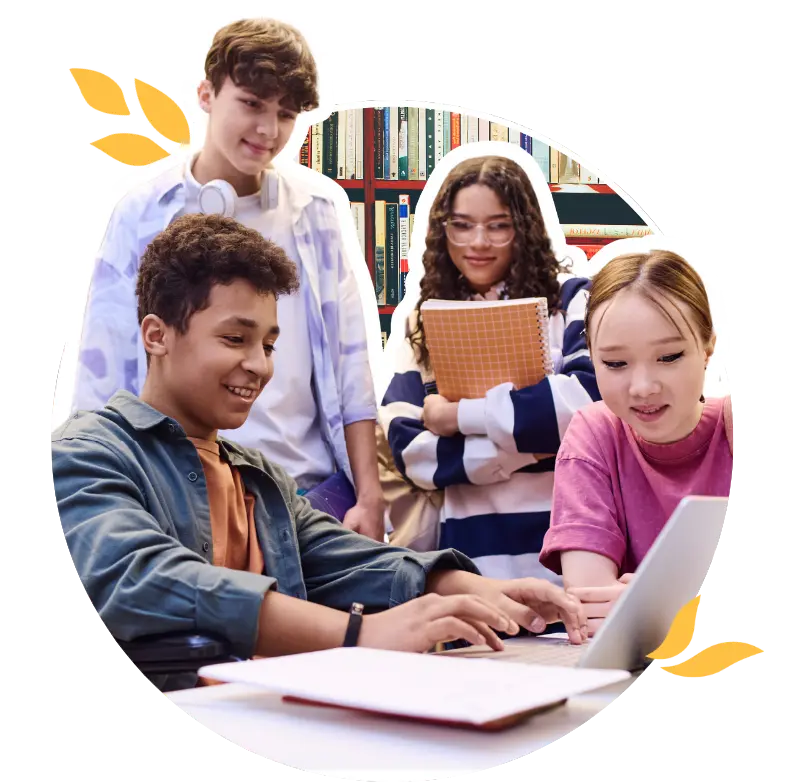
Get More with Resources from Britannica Education
Webinars
Live and on-demand training sessions to support educators with practical tips and best practices.
Blog
Insights, strategies, and inspiration from Britannica experts to spark curiosity and enrich instruction.
Teach Britannica
A free hub of classroom-ready ideas, lesson examples, and activities to bring Britannica resources to life in your school or library.

When Curiosity Leads, Learning Follows.
Research smarter. Learn deeper. Achieve more with Britannica Academic.
You may also be interested in
Britannica Original Sources
One of the largest digital archives of primary documents that build historical and evidence-based learning.
Britannica ImageQuest
A collection of more than 3 million rights-cleared, classroom-suitable images, videos, and digital art materials to support project-based learning, inquiry, and research.
Merriam-Webster Unabridged
America’s most authoritative dictionary, with comprehensive definitions, etymologies, and usage notes for academic writing and study.


